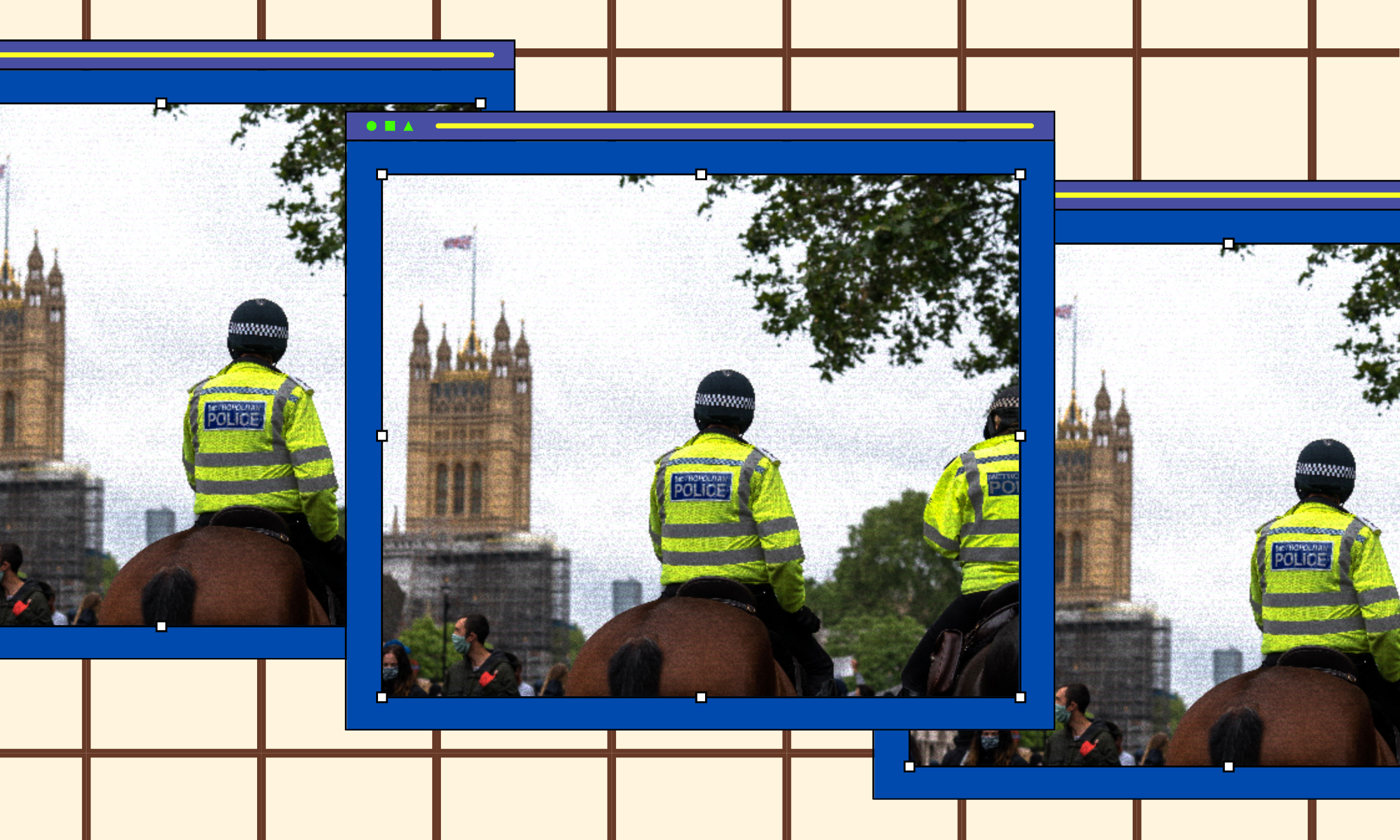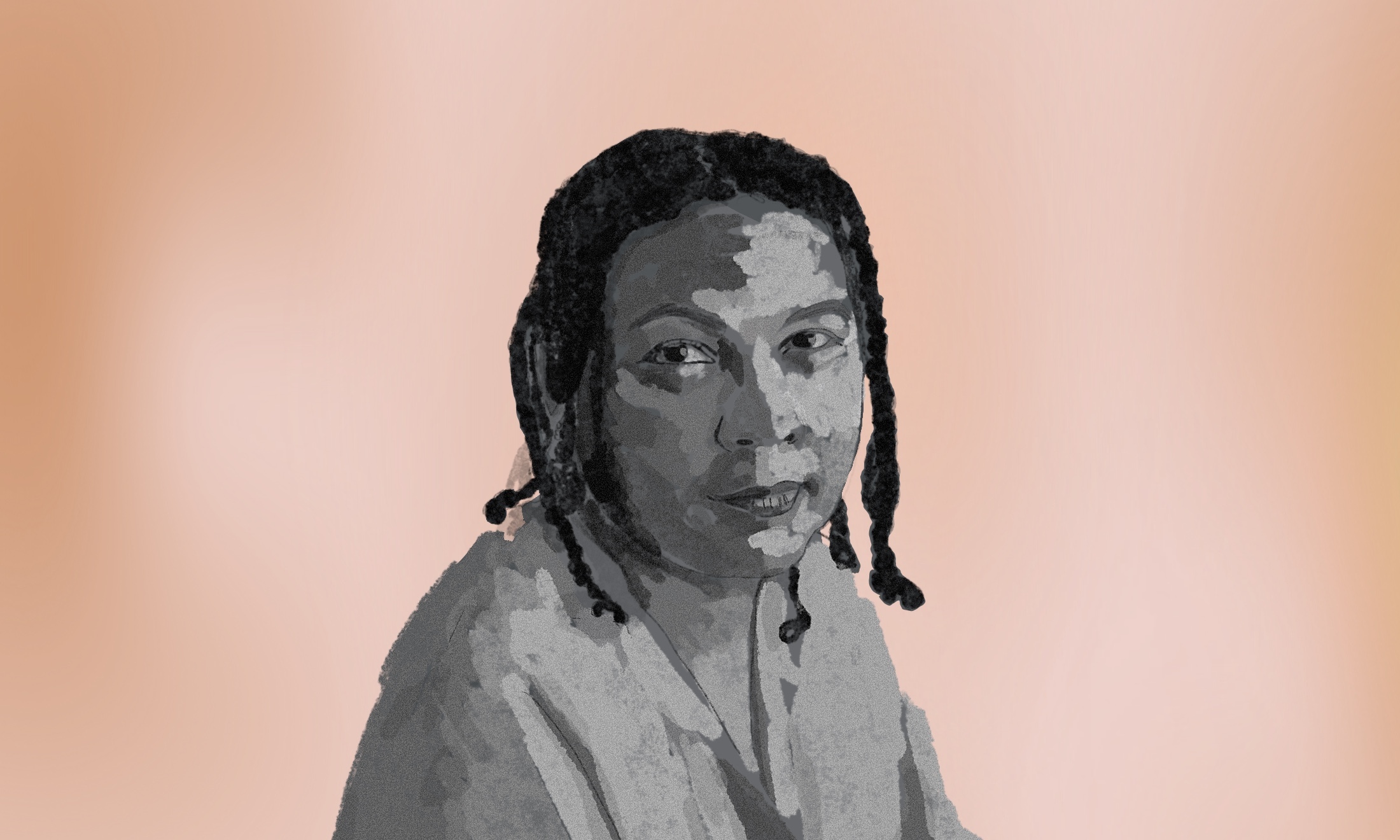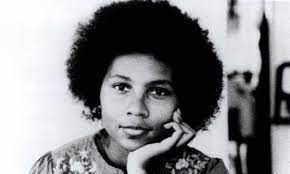How Black feminist radicals have expanded what it means to be free
In an extract from Akwugo Emejulu’s book ‘Fugitive Feminism’, Edna Bonhomme’s foreword explores the sociologist’s examination of fugitivity and liberation.
Edna Bonhomme
10 Feb 2023
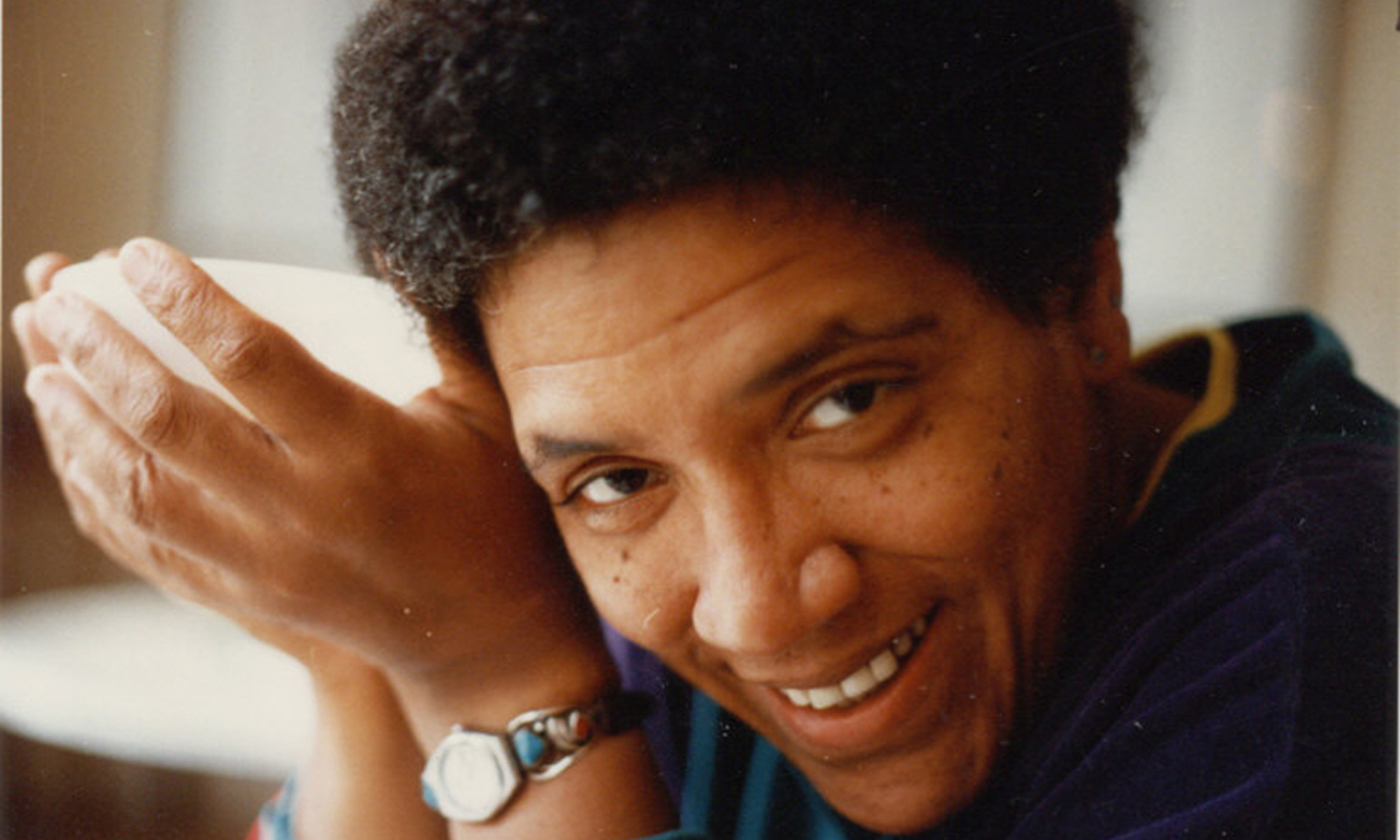
Flickr
Content warning: racism, police brutality, slavery, mention of death
When Black people meditate on their community, it comes not merely from a space of abstraction but a profound philosophical inquiry on what it means to be. Over four decades ago, June Jordan soberly dissected the fissures of US society in her essay collection Civil Wars. It’s a seductive read: “I resolved not to run on hatred but, instead, to use what I loved, words, for the sake of the people I loved. However, I did not know the content of my love beyond my people: what was I for?” She offers a vast and epistemological concern about whom she is connected to and what it means to be in the world, not just as an architect, for which she was trained, or a poet, for which she excelled, but as a Black woman living in the world.
Throughout the text, she attracts the reader with her critical prose; she invokes living and dead ancestors to unpack the many layers of Black history, Black silences, and Black intellectual thought. This was not dogmatic scripture meant to stake a claim, but the text was meant to give the reader pause and seep gently through the ways her personal life distilled into her poetry.
Like Civil Wars, Akwugo Emejulu’s Fugitive Feminism holds space for the intellectual to emerge from the personal. Emejulu, professor and sociologist, has written extensively on social class, Black feminism and social movements. Her commitment to Black theory demonstrates an ideological adherence to addressing anti-Blackness within and beyond the US Black diaspora.
Based in the UK, Emejulu has unpacked Black women’s movements in Europe as a distinct history that stands on its own and a myriad of coalitions that continue redefining solidarity. Expanding upon her previous work, she invites readers to contemplate the human; specifically, how Black people were made captive. She documents this in her personal and intellectual memoir, annexing a space for fugitive feminism, “a wild proposition, a paradoxical experiment”.
Emejulu shows how the exploitation of Black people has been contingent on the denigration of their humanity, which has manifested in extreme circumstances of health inequality, segregated and substandard housing, police brutality and chronic unemployment. Her book expands from Jamaican theorist Sylvia Wynter’s provocation of the human by calling attention to the uncompromising labour of women of colour activists and their political limitations within a white supremacist world. At this core, she acknowledges Wynter’s claim to divest from whiteness, but Emejulu diverges from her, asserting that “Black women . . . cannot be human.” We might find ourselves discomforted by this claim, but she dismembers the assumption of the human and settles for something else, writing the fugitive into feminism.
“This book is a reminder that Black feminism can be a promise, even if the world that we have inherited is so perilous”
The departure from the human might feel perilous, but the claim shines a bright light on the world that we’re living in. Since 2011, the abolition of the carceral state has increasingly become part of the demand for racial justice. The death of Michael Brown in 2014 sparked the Movement for Black Lives, leaving many of us to bear witness to the bodily harm of our Black kin.
Many activists have taken to great lengths to honour the names of Black people who have been maimed; their names have been chanted on street corners, highways and state buildings. Reading their names is an act of grief: Troy Davis, Trayvon Martin, Renisha McBride, Sandra Bland, Tamir Rice, Eric Garner, and Freddie Gray. When George Floyd, a Black man, was murdered by a white police officer in Minneapolis in the summer of 2020, watching the widely circulated video showing the last moments of Floyd’s life, I felt the devastating pain and anger at the never-ending injustice that Black Americans face.
When I lived in New York City in 2014, friends and fellow activists marched through the streets lamenting Eric Garner, an African-American man who, too, died pleading for his life, stating: “I can’t breathe!” The cascade of the Black Death – from the killing of Floyd to the massacre of other African Americans that summer: Ahmaud Arbery, Breonna Taylor, Tony McDade and many others whose stories have not made it to mainstream media. During the summer of 2020, hundreds of thousands braved a pandemic and sadistic police brutality to declare that Black people deserved to live. Such a testament should not be considered radical, but it has continued to be in the wake of growing dissent.
The anger, pain and despair that poured out in the streets of the United States, the UK and Europe were so powerful that they shook the whole world, inspiring solidarity protests in dozens of countries, which gave more ammunition to challenge the police state violence and the legacies of colonialism.
In France, Afro-French activists reignited the struggle for justice for Adama Traoré, a 24-year-old Black Parisian who died in police custody. In England, protesters attacked the statue of Edward Colston, a British merchant who built his wealth on the kidnapping of African people. In Belgium, mass protests forced the removal of several statues of King Leopold II, notorious for his brutal rule of Congo, and prompted the head of parliament to call for a truth and reconciliation commission to address colonial-era crimes. In the Netherlands, demonstrations elicited calls to ban the use of blackface to portray ‘Black Pete’ in Christmas celebrations.
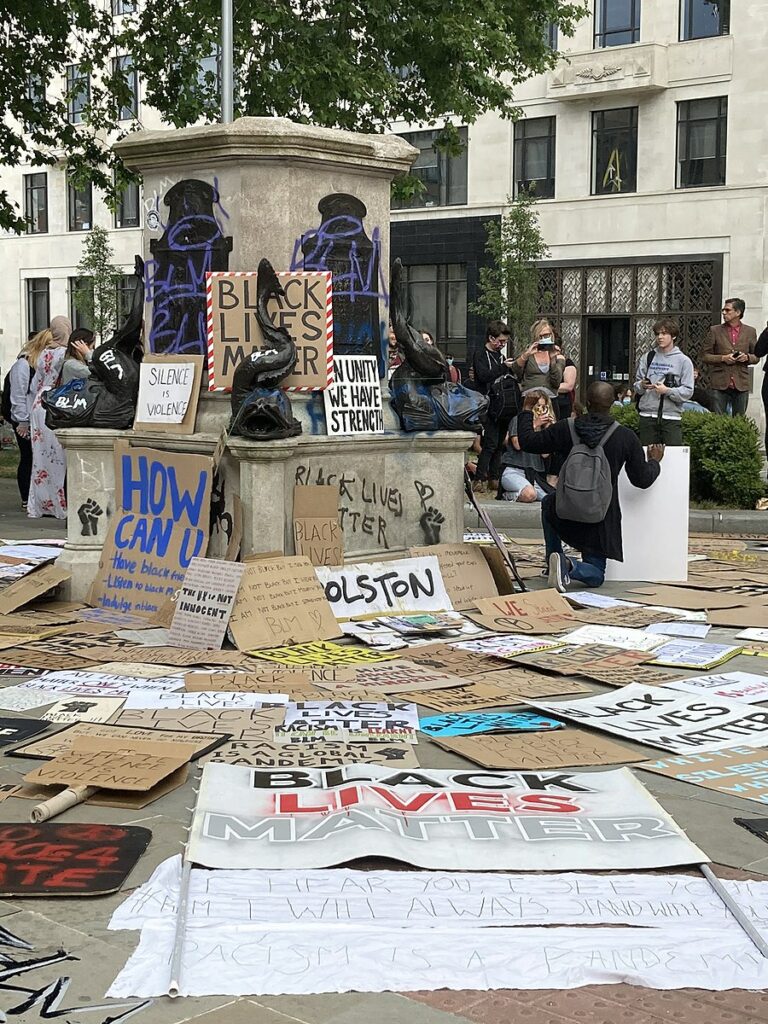
On the one hand, it was glorious to see the linguistic and political depth of these Black-led movements; on the other hand, the sheer number of protests showed how endemic and bilious racism is. Indeed, deep-rooted, debilitating structural racism is a global problem. It is a transatlantic creation forged and maintained in Europe and the Americas. These collective acts of resistance: chanting, grieving and decrying, are part of the ongoing assault on Black life in America and the world.
To unpack how these tragedies come to be, and to invoke the category of the human, is the purpose of Fugitive Feminism. In a moment when people are fighting for Black lives by challenging police violence, Black feminist theorists carry on the fight in a different but necessary fashion: by interrogating what it means to be unfree and not quite human. In Fugitive Feminism, Emejulu demonstrates over and over again that Black identity as concomitant with property is part of the state of captivity. Her philosopher of choice is Black feminism. From Sylvia Wynter to Saidiya Hartman, Emejulu has named the Black theorists who trouble liberal perceptions of freedom.
Resistance, after all, is infectious, and the Black working class – whether organised or unorganised – has been a consistent axis of liberation. The extent to which Black women get credit for this resistance is a barometer of society’s value of Black women – which Emejulu has noted in previous works. Yet it does not mean their efforts to dismantle racism and sexism are absent. In the anthology To Exist is to Resist: Black Feminism in Europe, Emejulu and her co-editor, Francesca Sobande, brilliantly captured how Black activists and scholars living in Europe have formulated their own language of resistance in conversation with, but ultimately autonomous from, US Black feminism. The book explores Black feminism in Europe, the insistence that “Black feminism does not merely operate against violence and exclusion but creates and fosters a different way of seeing and being in this world.”
“Black liberation is not merely the history of victimisation and exploitation or grand pronouncements, but one where Black people – from North America to Europe – are theorising, organising and resisting centuries of racial oppression”
Black women have been at the centre of this struggle, at the helm of disrupting the brutal systems of racial capitalism from the favelas in Rio de Janeiro, the working-class neighbourhoods in Port-au-Prince, and the banlieues in Paris. The academic, Mary Helen Washington coined the phrase ‘Black left feminism’ to describe the post-World War II literary work of Black women radicals. This tradition is notable as it shows the connections between Black women whose particular mobilisation was tied to the ongoing struggle for bodily autonomy – a fight many Black women struggle for until today.
Returning to Jordan, how do Black women begin to answer the question: ‘what was I for?’ The question, of course, is loaded with the assumption that our presence is utilitarian, that our essence has a purpose. Emejulu’s work extends beyond the speculative and grasps deep history with revolutionary thought. She points to feminism as both a destructive and productive force that addresses the erasure and exploitation of Black women. When Emejulu meditates on her states, her words radiate off the page. She notes, “The understanding of my non-humanity crept up on me, and now I cannot let it go. I want to pick it up, turn it over in the light. Study it. Understand it. And embrace it.” But even more so, she is invested in how the history of Black liberation is not merely the history of victimisation and exploitation or grand pronouncements, but one where Black people – from North America to Europe – are theorising, organising and resisting centuries of racial oppression.
Emejulu’s Fugitive Feminism invites the reader to think about politics within the framework of experimentation in Black feminist thought through the works of Patricia Hill Collins and Gail Lewis. These Black authors have been alert and sensitive to the Black radical zeitgeist, not as passive subjects but as Black theorists engaged in Black feminist worldmaking. These figures connected a commitment to Black internationalism and reparations.
By tirelessly describing the details of feminist theory and imagination, Emejulu shows that there are also relevant and pressing political tensions and concerns in these struggles. Most notably, “what could we build by stepping away from the human together?” She paints a landscape where we can come to understand the condition and the evolution of the fugitive. History gnaws a hole through the pillars that created the fugitive.
In the documentary film essay Exterminate All the Brutes, the Haitian filmmaker Raoul Peck soberly articulates history’s silences and blaring cannons. He shows how some historians’ unholy alliances with the powerful are a further investment in uplifting the elite while eliding the harm done to the oppressed. The pursuit of history by the oppressed may look different from one person to the next, excavating the records of the marginalised and their political activation for radical imagination. That means unlearning that which has been assumed and engaging critically with how the history of slavery and colonialism not only informs past subjects but also shapes the African diaspora today.
The dangerously curtailed category of the human, Emejulu explains, poses a set of problems for the contemporary moment. As Sylvia Wynter and Katherine McKittrick have argued, since Black people were not included in Enlightenment philosophers’ categorisation of ‘the human’, they were not included in the Enlightenment’s valorisation of reason. By extension, they could be disproportionately subjected to slavery, colonialism and the carceral state. The relationship between (or perhaps the possibility of) unfreedom and racism is central to understanding how Black people might be rendered non-human.
“Fleeing is an act of de-commodification and refusal of racial capitalism”
Akwugo Emejulu
Buoyed by compassion and urgency, Black abolitionist scholars such as Ruth Wilson Gilmore and Angela Davis have sought to find a politics that could address the pervasive carceral state. The civil rights lawyer and advocate Michelle Alexander explained: “We must face our racial history and our racial present. We cannot solve a problem we do not understand.” Alexander rightly points out that racial justice is punctuated by the history of slavery, which continued into racial apartheid and mass incarceration. She argues that racism cannot be solved short of “reparations, reconciliation, and atonement for the land and the people the colonisers stole” and that we have to honestly and collectively address the harms that have been done to Black people. Emejulu’s critique of capitalism and the fugitive’s power to disrupt it is an implicit case for reparations – one that starts from dismantling the system that assigns value and humanity itself.
Emejulu has a molten desire to show that material conditions matter. She unambiguously addresses the myriad anti-Black racial hostilities capitalism has carried engendered. She states: “Fleeing is an act of de-commodification and refusal of racial capitalism.” This phrase is sung to me mainly because I was reminded of the Great Migration, not just in terms of the physical departure of African Americans from US southern states to cities in the north, but what W. E. B. Du Bois referred to as the ‘Great Strike’. By withholding their labour as sharecroppers, they were choking the pipeline of the southern plantation economy. Here, freedom is at stake.
Of course, Black political thought is more diverse and expansive than Black radicals’ appeal for reparations, nor is there a consensus. Political consciousness and lives are far more complicated and sometimes driven by practical concerns, local context and social movements. While anti-Blackness might subjugate Black people in ideological, mental or physical ways, Black people complicate that abjection by creating their future. Black people do this through what Robin D. G. Kelley framed as “new knowledge, new theories, new questions,” and making a social pact for liberation. It is a testament to the aggrieved that there continue to be social movements in spite of the ongoing assault of racial capitalism, we are still here.
“Reckoning with death’s adjacency to Black life in an anti-Black world is part of the task of surviving”
During the initial year of her cancer diagnosis, Audre Lorde tried her best to prepare for death by exercising patience; noting: “The enormity of our task, to turn the world around. It feels like turning my life around, inside out. If I can look directly at my life and my death without flinching, I know there is nothing they can ever do to me again.” Like many Afro-Caribbeans, Lorde had an unrelenting vision tied to resilience even when death brushed against her. Reckoning with death’s adjacency to Black life in an anti-Black world is part of the task of surviving.
There are no simple platitudes in Fugitive Feminism; instead, the text is an attempt to look squarely in the face of the dehumanisation of Black people and to elaborate candidly about the toll of living as Black folk. This book is a reminder that Black feminism can be a promise, even if the world that we have inherited is so perilous. Fugitive Feminism is a bricolage: an intellectual imprint and philosophical harmony between what it means to flee and conjure a world where we are set free.
Fugitive Feminism by Akwugo Emejulu is available for purchase via Silver Press here.
The contribution of our members is crucial. Their support enables us to be proudly independent, challenge the whitewashed media landscape and most importantly, platform the work of marginalised communities. To continue this mission, we need to grow gal-dem to 6,000 members – and we can only do this with your support.
As a member you will enjoy exclusive access to our gal-dem Discord channel and Culture Club, live chats with our editors, skill shares, discounts, events, newsletters and more! Support our community and become a member today from as little as £4.99 a month.

Britain’s policing was built on racism. Abolition is unavoidable

How Pakistan’s Khwaja Sira and transgender communities are fearing and fighting for their futures

Their anti-rape performance went viral globally. Now what?


